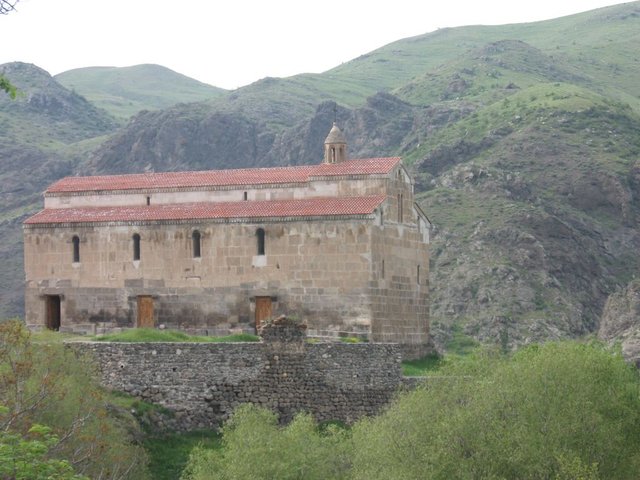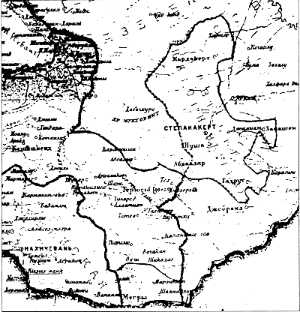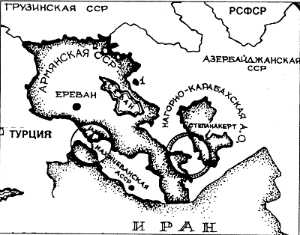

Artak Beglaryan is a spokesman for the government head of the self-proclaimed state of the Nagorno-Karabakh Republic.
The second Karabakh war ended in early April after four days of fighting. Who was it that “unfroze” the conflict after 22 years of inaction? How to get rid of the hatred separating the neighboring peoples?
Artak Beglaryan, a spokesman for the government head of the self-proclaimed state of the Nagorno-Karabakh Republic answered the questions of Siarhei Pelyasa. As a child, Artak lost his sight due to a mine explosion a year after the cease-fire in the Karabakh war.
Who and why benefits now from restarting the conflict?
In the first place it was beneficial to Azerbaijan of course. It was Azerbaijan that attacked the Republic of Artsakh, or as they say — the Nagorno-Karabakh Republic. If we consider not only the countries, it was personally Aliyev and his clan who would benefit from unfreezing the conflict. It was necessary to him because he has a lot of problems within the state. Azerbaijan now has a lot of problems. The drop in oil prices led to financial problems and social crisis. In addition the authority of Azerbaijan in the international arena has dropped significantly. Therefore, Aliyev had to somehow use the conflict with Karabakh to mobilize the people within the state as well as to justify the pressure on the opposition, journalists and human rights defenders. Of course, there are also other external factors. It is, for example the desire to correct the failure of the negotiations on the Karabakh conflict, and, to some extent, to get consent or even encouragement of Turkey to create a new point of destabilization in the region. But it seems that the plans failed.
The Azeris claim that they launched a preemptive strike on the Armenian forces, who were preparing for an attack on Azerbaijan. What do you think of this version? why would Armenians attack Azerbaijan?
Everyone understands that Armenia and Karabakh are not interested in attacking Azerbaijan. By our their official statements and actions, we showed that we are for peace. In this status quo, we are trying to develop and march forward. At the same time Azerbaijan, both at the state level and the presidential level said that the status quo is unacceptable for them. This explanation is enough to argue that it was Azerbaijan that began major military operations on the border with Nagorno Karabakh.
How do you assess the outcome of the confrontation? Who had goals and what were they? What did the sides reach?
The main objective of Azerbaijan was to achieve success and some territorial gains here, that would not only have strengthened its role in domestic politics, but would also allow to act from a dominant position in the negotiations with Armenia. But they failed to achieve their goals. They have no territorial gains in spite of the fact that they used heavy machinery in large quantities. That’s why its position at the negotiating table has weakened, and it began to be perceived as an aggressor country. Our main goal was to protect the borders. Basically, we managed to reach the goal, even though, sadly, it happened at the cost of human lives, but Azerbaijan had much bigger losses that were not part of its plans.
Some western commentators believe that the Armenians illegally occupied territory of Azerbaijan, what do you think about it?
These specialists, in my opinion, do not have the right to be called experts, because they do not know the basic rules of international law and do not know the story. Azerbaijan’s statements that Karabakh is part of Azerbaijan has no basis.
There are a lot of political, civil, historical and social factors, which prove that Karabakh has never been part of independent Azerbaijan. Karabakh was annexed during the Soviet Union times. But neither in the pre-Soviet period, nor in the post-Soviet period, Karabakh was paer of Azerbaijan. Seen legally, Karabakh was not a part of Azerbaijan, but a part of the Soviet Union. It’s a big difference. And earlier, prior to 1920, Karabakh was always an Armenian land. Of course, it had quite a diverse ethnic composition – Persians, Tatars lived in Artsakh, but the overwhelming majority of the population was always Armenian.
Let’s make an excursion into history. Armenians claim that Karabakh is a historical region of ancient Armenia. And Azerbaijan believes that Artsakh is historically an Azerbaijani land. What historical evidence does Armenia have?
Knowing even a few facts is sufficient, but we can present a lot of facts and evidence. Firstly, one of the facts is that the state of Azerbaijan did not exist until 1918. There was no Azerbaijani nation before 1930. If there was no such nation and state, how can they claim that this is a historically Azerbaijani land? Secondly, the presence of our historical monuments (Christian churches and culture monuments) with numerous inscriptions in Armenian is enough to understand that Armenians have lived there for centuries. In Artsakh there are now monuments dated back to 4-5th century, with inscription in Armenian alphabet since 10th and 14th centuries. At the same time, Azerbaijanis cannot cited as evidence even a single monument older than 19th century which would have an inscription in a language close to theirs, say in Turkish. These facts are already enough, but there is still evidence of historians and ethnic memory
How true is it that the conflict origin lies in the wrongly drawn ethnic boundaries in Karabakh and Soviet republics and then Moscow passed Karabakh to Armenia?
In fact, the conflict began not after 1988 but in 1918 or even earlier – in the Czarist Russia. In 1918, when the Armenian and Azerbaijani independent republics were proclamed, the situation had already been controversial. But not only in regard to the territory of Karabakh but about larger areas. In 1920 Azerbaijan and Armenia became Soviet republics, and in 1921 Caucasian Bureau of the Russian Communist Party decided that Artsakh has to become part of Azerbaijan, and with a wide border. Later, in the days of the Soviet Union, Azerbaijan gradually narrowed the territorial and administrative borders of the Nagorno-Karabakh autonomy. In 1930, Nagorno-Karabakh was completely severed from the Armenian Soviet Republic.
As a result, in 1988 the territory of Nagorno-Karabakh was already quite small and very different from the disputed territory since 1920. Why didn’t Moscow give this territory to the Armenians? It was a decision of Stalin for Azerbaijan to have an autonomous Armenian unit so he could use it to control both Armenia and Azerbaijan, keep them depend on him. In 1988-89 Moscow did not agree to return Artsakh to Armenia, because there were other areas with similar conflicts. A positive decision in our favor could have caused a chain reaction that could have lead to the disintegration of the USSR. Therefore, Moscow was rather harshly opposed to our liberation movement.
How is it possible to resolve this conflict? Maybe Armenians should give up a part of the territory that you are occupying in return for Baku recognizing Karabakh, or are there other options?
If Baku has to recognize NKR on some terms, we do not care about their recognition. We do not need recognition. We need homeland, we need certain conditions to ensure that we can develop and live in safety. Recognition, however, does not give any guarantees of security and development. We can develop and live even in the conditions of the unrecognized state. But this land is our home. We simply have to live and develop on this earth. And how should the conflict be solved?
First of all, the psychology and mentality of both nations should change. After all, even if the territorial concessions are made, the two countries and two peoples cannot coexist side by side when they are full of hatred. Any geographical boundaries can disrupt and destroy due to this hate. It is necessary to destroy the hatred in our hearts at the state level. First and foremost, Azerbaijan give up their hatred of Armenians, give up on propaganda. So we can look at a change in our psychology through generations. Only after that we can think of the territory, which territory belongs to whom and so on.
Siarhei Pelyasa, belsat.eu



